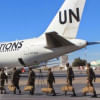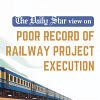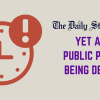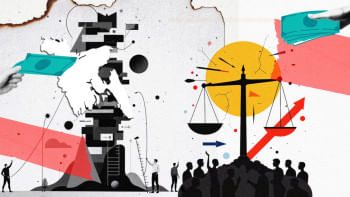Railway inefficiencies are proving costly

The continued poor performance of Bangladesh Railway (BR), particularly in terms of completing projects on time, is really frustrating. According to a report by this daily, six major projects of BR have been on halt for years or have seen little to no progress of late. The fate of two of the projects have become uncertain due to complexities over financing. Complications in land acquisition and lack of manpower were the other reasons given by BR officials for the delays.
One of the projects was taken up in July 2011 to rehabilitate the Kulaura-Shahbazpur section of the railway to establish connectivity between India and Bangladesh. It was supposed to be completed by December 2012, but saw only 27.5 percent progress over the last 12.5 years, while its cost also rose more than five times. As per officials, the problems arose on the side of the Indian contractor, but they have now finally resumed work. Another project was taken up in January 2015 to build a second line on the Dhaka-Narayanganj route to increase the existing capacity of 16 pairs of trains per day. Its deadline was originally set to June 2017. However, when the project was 82 percent complete, the contractor laying the rail line cancelled the contract last year, alleging that it was not getting payments and the project site was not handed over on time.
Similarly, another project is now stuck in limbo after China in early 2021 decided to pull out from funding it, citing "lack of in-depth preliminary work and insufficient feasibility study." The common theme running through these floundering projects is the lack of good governance and accountability, where none is held responsible for project delays, thus perpetuating such malpractices. Experts have also alleged that while BR has a master plan, its projects are not taken up accordingly due to the problem of funding. Unfortunately, the BR has neither the capability nor interest to revise the plan.
So, while external factors have played a part in the delays, BR's inefficiencies, including the inability to properly negotiate with foreign partners, are also to blame. And the fact that the BR has been mired in myriad irregularities does not help either. Consequently, it is the public that are suffering from poor and insufficient services. This is totally unacceptable. It is time for the government to overhaul the BR and bring some much-needed discipline into it.


 For all latest news, follow The Daily Star's Google News channel.
For all latest news, follow The Daily Star's Google News channel. 








Comments